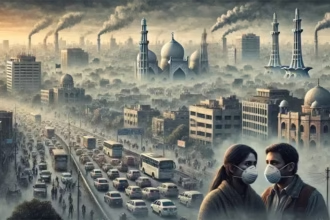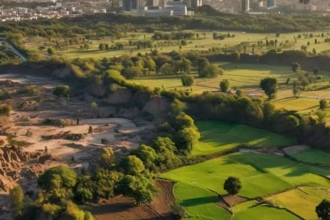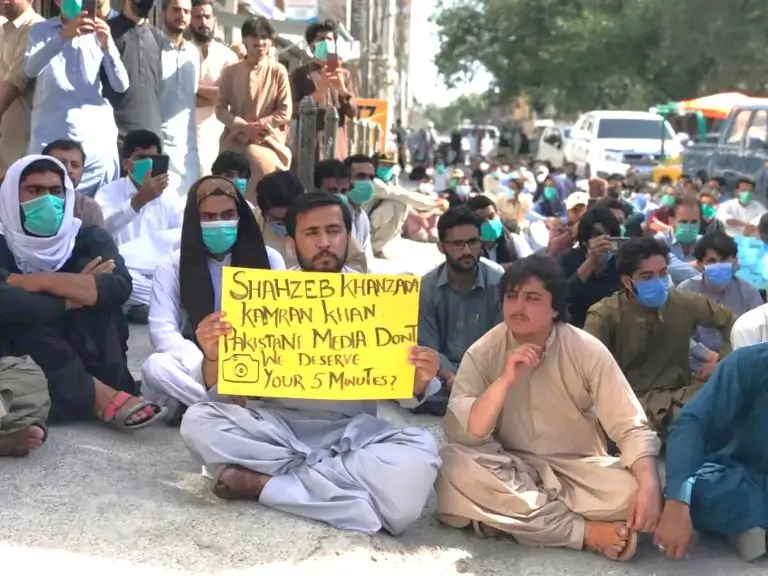“Every action has a reaction.” Newton’s law, often quoted in science classrooms, resonates deeply with the current tragedy unfolding in Khyber Pakhtunkhwa (KP). Human actions — unchecked urbanization, deforestation, and unregulated construction — have combined with the force of climate change to create disasters whose consequences Pakistan continues to bear.
Pakistan ranks among the top 10 most climate-vulnerable countries in the world, and yet, its governance remains strikingly unprepared. The catastrophic floods of 2022 were meant to be a wake-up call. Today, as flash floods once again submerge KP’s villages and towns, one wonders: have we learnt anything at all?
Torrential rainfall and sudden cloudbursts have paralyzed life in several districts of KP. Entire villages have been washed away. Hundreds of lives have been lost, many remain missing, and thousands are left homeless. Survivors face food shortages, unsafe drinking water, and collapsed transport networks. Local volunteers, joined by rescue workers, continue to search for bodies under rubble and debris.
Pakistan ranks among the top 10 most climate-vulnerable countries in the world, yet its governance remains strikingly unprepared.
In Buner district, one of the hardest-hit areas, the ferocity of floodwaters carried boulders and stones that crushed homes and public buildings. Villages disappeared overnight beneath mud and water. The destruction of agricultural land — the livelihood of most rural families — raises the specter of food insecurity and starvation if rehabilitation is delayed.
On August 16, the government declared an emergency in KP’s flood-hit districts. Rescue operations are underway, but the scale of dislocation demands far greater urgency. Roads and bridges must be repaired swiftly to reconnect isolated areas. Relief camps must prioritize women and children, who face heightened risks of disease in unhygienic, overcrowded conditions.
Entire villages in KP have been washed away, leaving behind death, destruction, and the specter of food insecurity.
Equally pressing is the restoration of farmland. Without immediate intervention, the collapse of agriculture could deepen rural poverty and destabilize food supplies across the province.
Prime Minister Shehbaz Sharif, during his visit to Buner, admitted bluntly: “We have not learnt a lesson from the 2022 flood.” His statement underscores Pakistan’s governance dilemma. While natural disasters may be unavoidable, the failure lies in preparation and mitigation.
Unregulated construction along riverbanks and floodplains has magnified the destruction. Ironically, KP’s Chief Minister pledged to relocate people to safer areas only after the floods had already claimed lives and livelihoods. If such plans had been enforced earlier, the scale of the disaster might have been far less severe.
Floods are no longer ‘natural’ disasters alone; they are the product of climate change and human negligence.
Relief operations, while urgent and necessary, cannot substitute for long-term planning. Pakistan must move beyond reactionary measures and adopt forward-looking strategies. Strict enforcement of land-use regulations is essential, particularly in stopping construction in flood-prone areas that are repeatedly devastated. Alongside this, investment in climate-resilient infrastructure — stronger embankments, efficient flood warning systems, and effective drainage networks — is no longer optional but a pressing need.
Equally critical is the restoration of degraded ecosystems. Forests and wetlands, long neglected and eroded, are natural buffers against flooding, and their revival could significantly reduce the scale of future disasters. Comprehensive disaster preparedness must also be prioritized, ensuring that local administrations are not only trained but also resourced to respond swiftly when emergencies strike.
As the saying goes, “better late than never.” Yet for KP — and Pakistan as a whole — “late” has already cost thousands of lives and billions in damages. It is now up to the authorities to prove that this time, the lessons of past tragedies will not be ignored.
Floods in Pakistan can no longer be seen as “natural” calamities alone. They are the outcome of a deadly combination of climate change and human negligence. If the country continues to act only after tragedy strikes, then each year will bring a repeat of today’s suffering. The government’s promises of stricter policies, safer housing, and resilient planning must not remain rhetoric. Action — swift, consistent, and uncompromising — is the only way forward.

